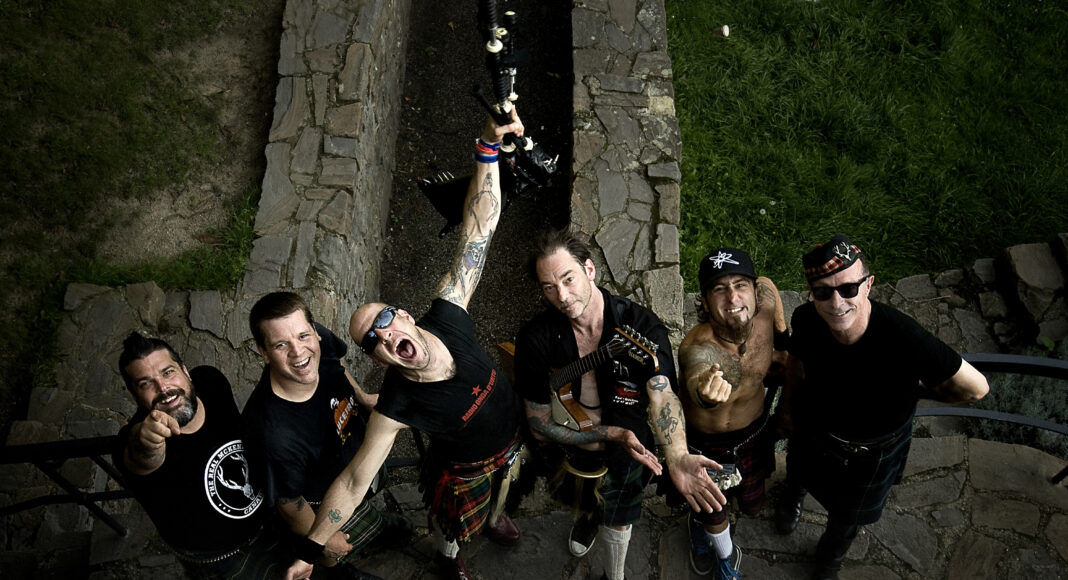It’s not easy being the frontman of a Celtic punk band. Shane MacGowan of the Pogues was once so drunk he knocked himself out falling down in the middle of the street—and his teeth actually looked better afterward. Al Barr of the Dropkick Murphys is going to have to sing “I’m Shipping Up to Boston” at every show for the rest of his life.
And then there’s Paul McKenzie of the Scot-inspired Real McKenzies. He knows when people are looking at him on stage, they’re only thinking one thing: What’s under the kilt? All too often, they’re not shy about finding out for themselves.
“I’ve had many hands up the kilt while doing shows,” he admits. “If I were to do that to someone, I’d be in jail. But we prefer not to press charges.”
Those who choose to slide up his cultural pride will quickly discover the answer to the age-old question is what they suspected all along: nothing. As he likes to tell them, “That’s not a microphone, you know, but speak into it if you like.”
The Real McKenzies have one of the strangest stories in punk rock. A Canadian band blending traditional Scottish music and hardcore, they put out their first record in 1995, and found a bigger audience for 1998’s Clash of the Tartans, thanks to its single “Mainland.” They were then signed to Honest Don’s, the subsidiary that popular punk label Fat Wreck Chords reserved for bands that didn’t fit into their trademark sound. When Honest Don’s folded, they were one of the only bands moved to Fat, for 2005’s 10,000 Shots. Their new record, Westwinds, is their eighth.
It’s unbelievable how far the band has come in two decades. Keep in mind, McKenzie’s original idea was to dress a cute punk girl in a kilt and have her sing Suzi Quatro covers for a band called Tart ‘n’ Haggis. But he couldn’t find the right girl, and everyone wanted to spell it “Tartan Haggis,” ruining the criminal joy that can only come with a truly bad pun.
Then one day, while listening to early-20th-century Scottish entertainer Harry Lauder, it all came together.
“I was playing Sir Harry Lauder, and a roommate was playing Sex Pistols, and another roommate was playing Public Enemy,” he remembers. “For a brief moment, it all melded, and I had an epiphany. And here we are today.”
Not that he had any idea he would be. “When we first started the band, we didn’t really take it seriously. We did one record at IFA in Seattle, just to document it, because we knew that no one would believe we had actually existed. That record took off, and that was the beginning of it. And it just never stopped,” he says.
.Interview: Why Nothing Comes Between The Real McKenzies and Their Kilts




